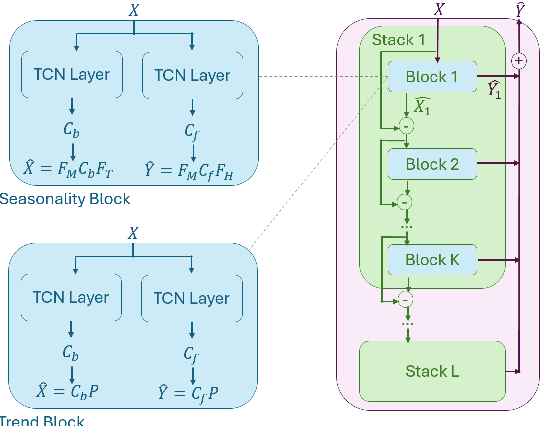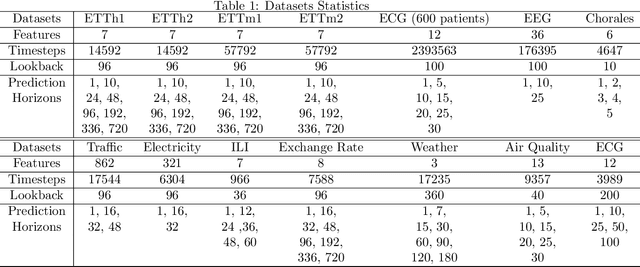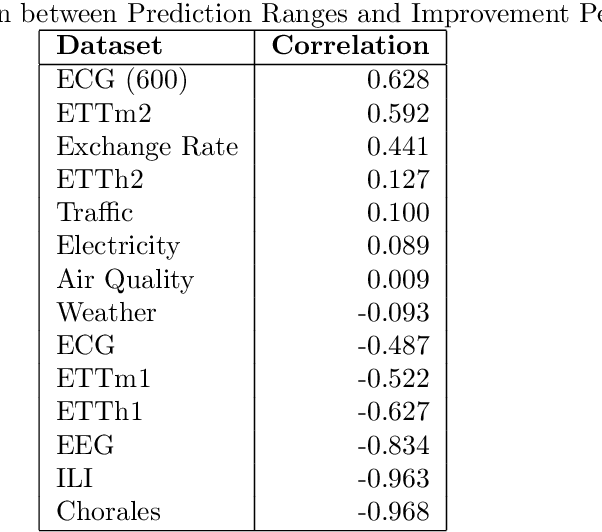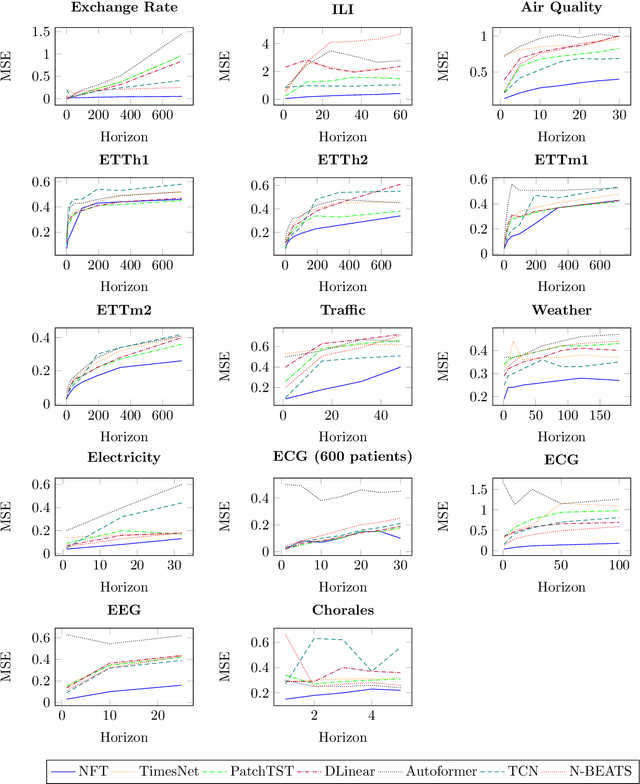Noam Koren
SFO: Learning PDE Operators via Spectral Filtering
Jan 23, 2026Abstract:Partial differential equations (PDEs) govern complex systems, yet neural operators often struggle to efficiently capture the long-range, nonlocal interactions inherent in their solution maps. We introduce Spectral Filtering Operator (SFO), a neural operator that parameterizes integral kernels using the Universal Spectral Basis (USB), a fixed, global orthonormal basis derived from the eigenmodes of the Hilbert matrix in spectral filtering theory. Motivated by our theoretical finding that the discrete Green's functions of shift-invariant PDE discretizations exhibit spatial Linear Dynamical System (LDS) structure, we prove that these kernels admit compact approximations in the USB. By learning only the spectral coefficients of rapidly decaying eigenvalues, SFO achieves a highly efficient representation. Across six benchmarks, including reaction-diffusion, fluid dynamics, and 3D electromagnetics, SFO achieves state-of-the-art accuracy, reducing error by up to 40% relative to strong baselines while using substantially fewer parameters.
SVD-NO: Learning PDE Solution Operators with SVD Integral Kernels
Nov 13, 2025Abstract:Neural operators have emerged as a promising paradigm for learning solution operators of partial differential equa- tions (PDEs) directly from data. Existing methods, such as those based on Fourier or graph techniques, make strong as- sumptions about the structure of the kernel integral opera- tor, assumptions which may limit expressivity. We present SVD-NO, a neural operator that explicitly parameterizes the kernel by its singular-value decomposition (SVD) and then carries out the integral directly in the low-rank basis. Two lightweight networks learn the left and right singular func- tions, a diagonal parameter matrix learns the singular values, and a Gram-matrix regularizer enforces orthonormality. As SVD-NO approximates the full kernel, it obtains a high de- gree of expressivity. Furthermore, due to its low-rank struc- ture the computational complexity of applying the operator remains reasonable, leading to a practical system. In exten- sive evaluations on five diverse benchmark equations, SVD- NO achieves a new state of the art. In particular, SVD-NO provides greater performance gains on PDEs whose solutions are highly spatially variable. The code of this work is publicly available at https://github.com/2noamk/SVDNO.git.
Membership Inference Attacks Against Time-Series Models
Jul 03, 2024



Abstract:Analyzing time-series data that may contain personal information, particularly in the medical field, presents serious privacy concerns. Sensitive health data from patients is often used to train machine-learning models for diagnostics and ongoing care. Assessing the privacy risk of such models is crucial to making knowledgeable decisions on whether to use a model in production, share it with third parties, or deploy it in patients homes. Membership Inference Attacks (MIA) are a key method for this kind of evaluation, however time-series prediction models have not been thoroughly studied in this context. We explore existing MIA techniques on time-series models, and introduce new features, focusing on the seasonality and trend components of the data. Seasonality is estimated using a multivariate Fourier transform, and a low-degree polynomial is used to approximate trends. We applied these techniques to various types of time-series models, using datasets from the health domain. Our results demonstrate that these new features enhance the effectiveness of MIAs in identifying membership, improving the understanding of privacy risks in medical data applications.
Interpretable Multivariate Time Series Forecasting Using Neural Fourier Transform
May 22, 2024



Abstract:Multivariate time series forecasting is a pivotal task in several domains, including financial planning, medical diagnostics, and climate science. This paper presents the Neural Fourier Transform (NFT) algorithm, which combines multi-dimensional Fourier transforms with Temporal Convolutional Network layers to improve both the accuracy and interpretability of forecasts. The Neural Fourier Transform is empirically validated on fourteen diverse datasets, showing superior performance across multiple forecasting horizons and lookbacks, setting new benchmarks in the field. This work advances multivariate time series forecasting by providing a model that is both interpretable and highly predictive, making it a valuable tool for both practitioners and researchers. The code for this study is publicly available.
 Add to Chrome
Add to Chrome Add to Firefox
Add to Firefox Add to Edge
Add to Edge